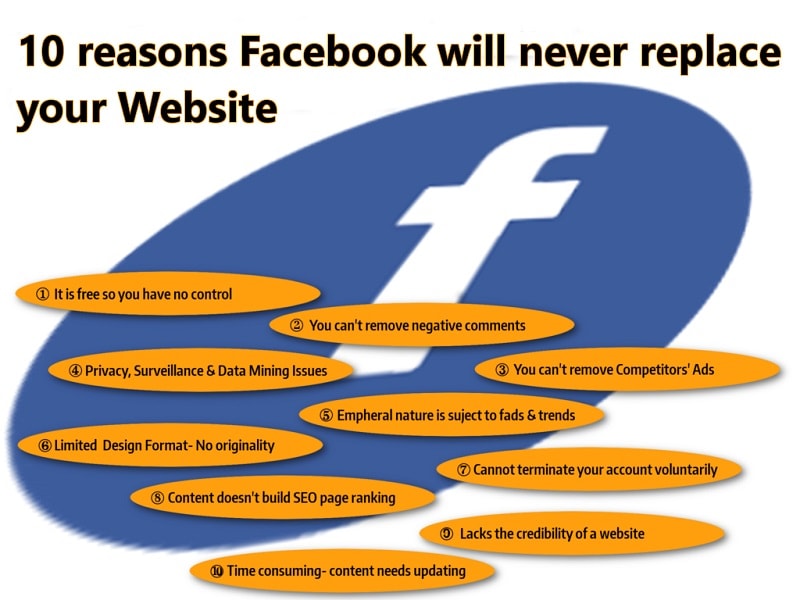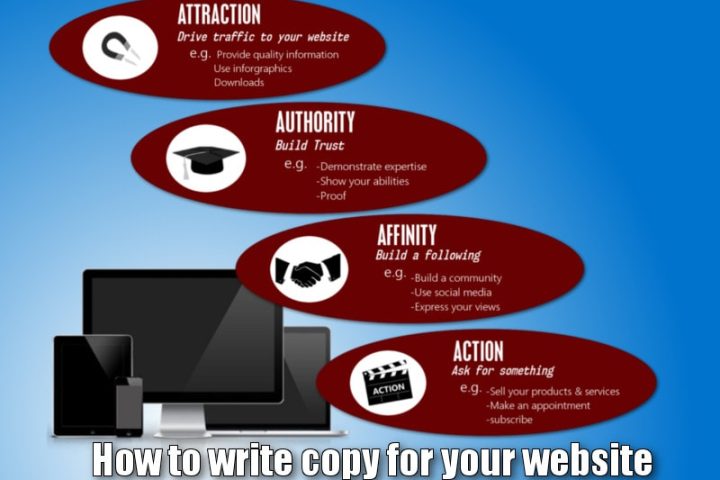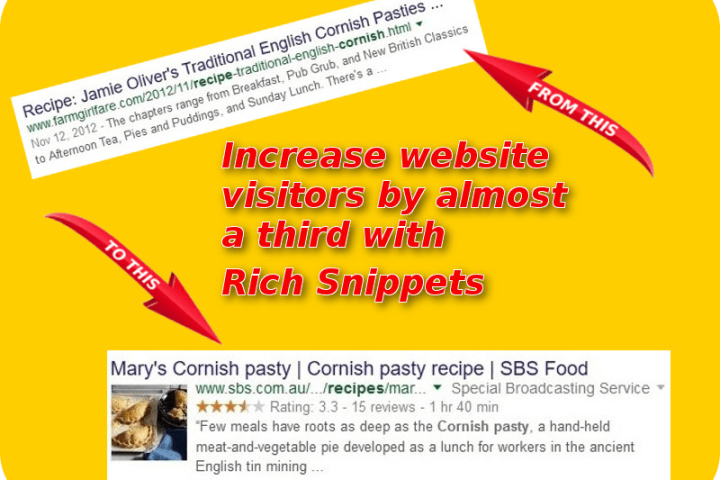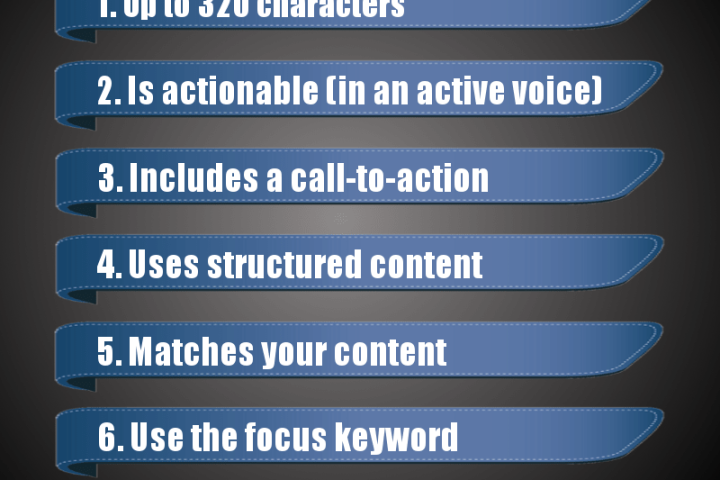Facebook Page or a Website
At one time the only way to have any presence online was to have your own website. The growth of Social Media, has changed all that. There are now many ways to promote your business online. The question is, which is best for your business, a dedicated website, or Social Media page such as a Facebook, LinkedIn Profile etc?
Benefits of Social Media
- Fast and free – Social pages are easy to set up and there is usually no charge.
- Low-commitment – Since your social profile is free, you can simply drop it, or ignore it if it doesn’t produce the results you were expecting.
- Reach and Relationships – As part of Facebook’s huge network, there is a better chance that your page will find some traffic. Social Media encourages interaction, this allows you to easily communicate and build relationships.
- Low Maintenance – There is no website to maintain.
Disadvantages of Social Media
- You’re at Facebook’s mercy – The Social Media provider’s terms and conditions control what content and promotions can be shown and how they are presented. For example, if you want to run a contest, you must follow their rules. Remember within social networks where you haven’t paid a fee, they don’t owe you anything and their interests almost certainly aren’t the same as yours.
- Limited design – With Social Media, you have to follow the proscribed format. You can customize your header and profile image, but you are constricted by the basic layout. There is no room for originality, nor will be able to focus on your key products, services, key differentiators, unique sales proposition etc
- Negative Comments – you are not in complete control of your profile. Consumers can ask questions and voice their feedback and complaints. You cannot remove negative comments on your social page.
- Competitor’s Ads – Facebook places advertising in the right sidebar on pages. If your competition is advertising, it’s entirely possible, if not likely, that their ads will appear directly opposite your own content. You need one place on the web that is all your own — a website is an excellent and cost-effective way of achieving that.
- Low Maintenance but lack of control – Facebook can and does decide to make changes that can impact upon your business. Facebook has a history of making changes to the user interface, as well as adding and removing features, and making numerous policy changes.
- Inability to voluntarily terminate accounts- Facebook allows users to deactivate their accounts but not actually remove account content from its servers
- Privacy, Surveillance and Data Mining – There have been some concerns expressed regarding the use of Facebook as a means of surveillance and data mining.
- Very time consuming – You have to spend a great deal of time updating and monitoring your Social Media pages. If you do not your followers may assume that you have abandoned your page.
- Limited reporting tools – The level of reporting and features available are often less than with a website. You only get the information the social site chooses to provide you with.
- Lack of User Engagement can be expensive – Lack of user engagement with your Facebook posts can cause people to stop visiting your page. Once this happens Facebook will begin to take your posts out of your previously engaged customer’s News Feed. As a result you will need to start paying to promote posts to people who have liked you, or begin advertising (which of course, isn’t free) to engage new users.
- No search engine ranking.– The work and content that you are posting on your social Media page is not contributing to your search engine results rankings. Facebook is denying you a potentially large market of prospective customers. If search is a major source (or prospective source) of potential new customers, you’re going to need your own website to control your SEO. Content is a huge and resource-heavy aspect of web-based marketing. When you take the time to create good content, make sure you showcase it on your own website so you get the most benefit from it.
- Lack of Credibility- A Facebook page does not have the same credibility as a website. Consumers expect companies to have websites. They trust a business more if it has a website.
- Ephemeral nature of Social Media – Social Media is ephemeral by nature, it is subject to fads and trends. Most businesses are looking to build long term relationships with their customers, they are looking for stability. A high number of followers does not mean that they are actually following you. Facebook occasionally culls fake users and inactive profiles.
Conclusions
Social Media can definitely help build brand recognition and strengthen your on line presence. Social Media should be used as part of a marketing strategy with your website at its centre. Social Media can drive traffic to your website. Remember, you control your website, you don’t have any control over social media. Use your content to enhance your websites’ rankings and build long term relationships. Social Media is excellent when you want to promote a one off event. You can use the calendar functions to encourage replies and exploit the viral properties of the share button. For the follow up, you can use photo galleries and video apps. Ultimately, to create the kind of digital presence that is required for a small business to succeed you need a dedicated website. Your Social Media page can be a valuable accessory to your website, but not a replacement.




